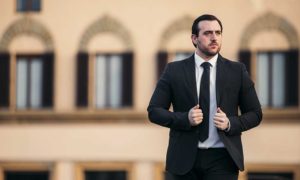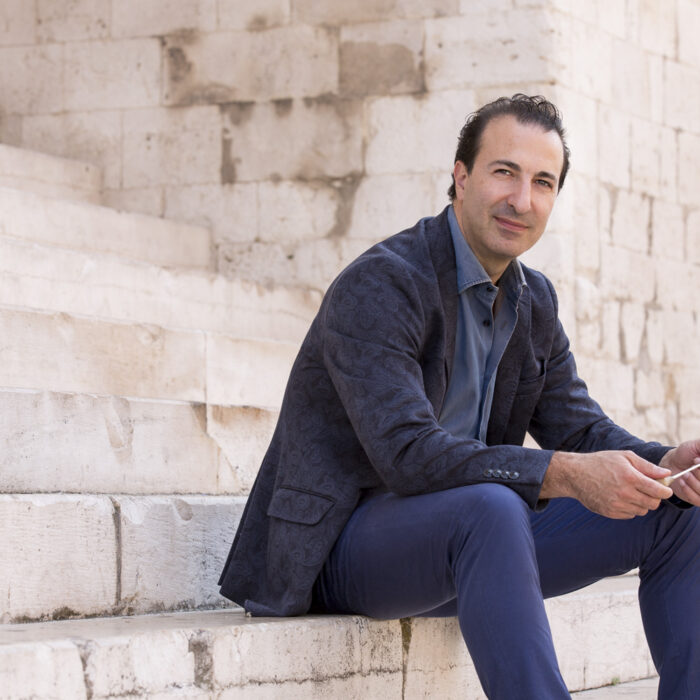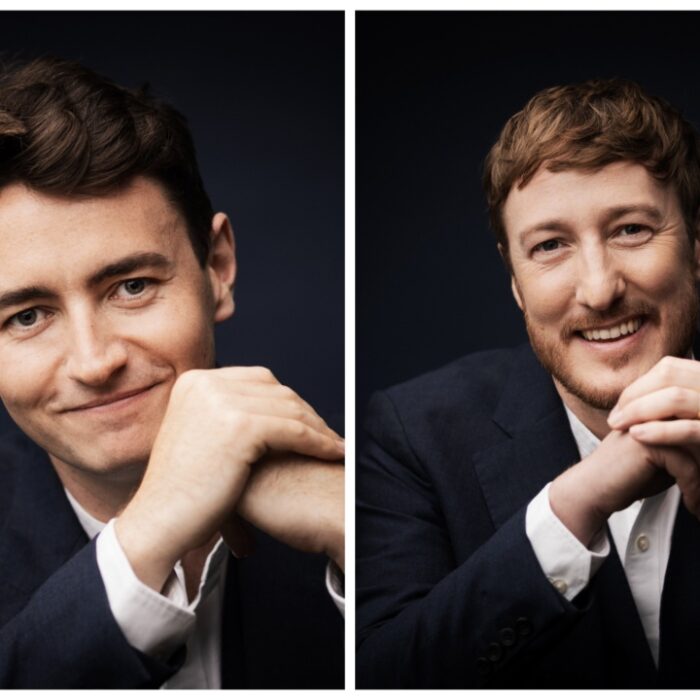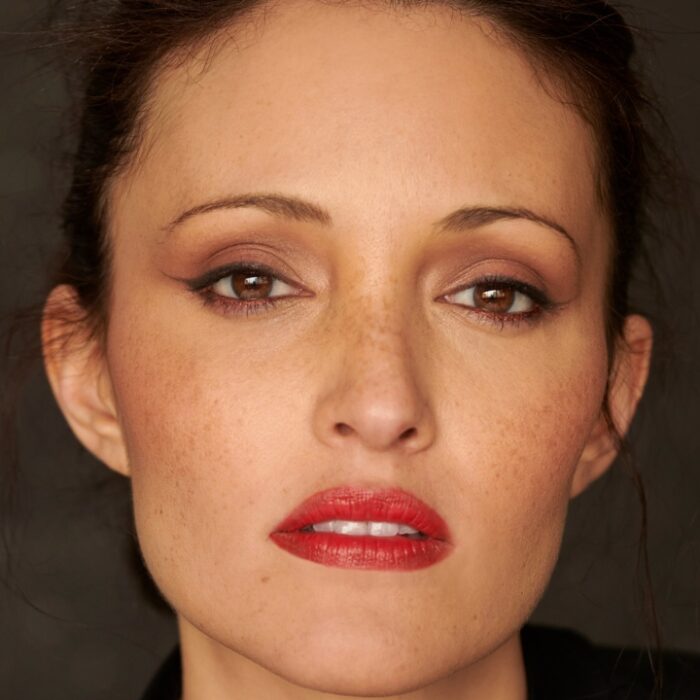
Q & A: Tenor Freddie De Tommaso on ‘Madama Butterfly,’ His Inspirations & What He’d Like to Change About the World
By Mike Hardy(Credit: CraigGibson)
Originally having trained as a baritone, Freddie De Tommaso is an Anglo-Italian tenor from Tunbridge Wells who went from working in his Father’s High Street Italian restaurant to some of the great opera houses of the world. He studied at the Royal Academy of Music and his star was launched when he won the Plácido Domingo Tenor Prize and the Verdi Prize at the 2018 Viñas International Singing Competition in Barcelona.
De Tommaso received universal acclaim when he stepped up to rescue an ailing Bryan Hymel in December of last year, substituting his Cavaradossi halfway through the Royal Opera House’s performance of “Tosca.” By all accounts, Freddie brought the house down and according to ‘The Times’ critic, the occasion was described as a “had to be there moment.”
Exclusively signed to Decca records (the first tenor to do since Jonas Kaufmann) his debut album, “Passione,” a recital disc of Italian popular songs received unanimous critical acclaim. He has just released his second album, “Il Tenore” en ensemble of arias and duets by Puccini and Bizet.
He is currently appearing at the Royal Opera House as Lieutenant Pinkerton in Puccini’s “Madama Butterfly” and OperaWire had an opportunity to catch up with him about this production as well as his other major projects and career development.
OperaWire: I know you’re in the middle of a “Madama Butterfly “contract for the Royal Opera House. How’s it going?
Freddie De Tommaso: Great, thank you; I’ve done two performances. There’s two casts, but I’m singing seven or eight performances.
OW: Undoubtedly one of Puccini’s masterpieces, in the third decade of the 21st Century it doesn’t sit comfortably with a lot of cultural sensitivities. Pinkerton is a hard character to defend, isn’t he?
FDT: It’s THE character as a tenor, because you don’t get to play the baddie very often but this is the one tenor role where you really are bad. Even if you’re full of remorse at the end which your character is are; Pinkerton sings “Addio, fiorito asil…” You’ve really done bad.
OW: I know that for several years now there’s been quite a bit of furore surrounding this opera with its accusations of Cultural appropriation, American Imperialism, child sexual exploitation and even racism. I know that Royal Opera has taken steps to make the production more palatable to certain factions. Being aware of all that and knowing the cultural impact this opera has had on a number of groups, did that influence, in any way, the way you approached the role of Pinkerton?
FDT: Well, I’ve just a new production of this opera in Dresden and the Director there, Amon Miyamoto who is Japanese, normally a film director but he was directing this opera; he tried to make Pinkerton as likable as possible. He really tried to make me really nice. Even to the extent where, when I came back in the third act he made me, like, crippled. I had a war injury and I had a crutch, one of my legs didn’t work. He really tried to make it super nice as possible.
So I said, OK, in THIS production at Covent Garden, I’m going to go completely the other way and try and be as much of a bastard as possible. So that’s what I kind of went for. So in the first act, trying to be very dismissive of all the Japanese characters; the servants, Suzuki, Goro… limited eye contact, not really giving them any respect, so I really tried to play that kind of arrogant character. That’s what I went for, at least.
OW: Let me throw you some accolades that have been written about you: “ a BOMBSHELL voice;” “a general in the making”; “displays limitless promise;” “Freddie has the world at his feet;” and MY personal favorite: “Listen to Freddie De Tommaso at full throttle and you’ll need to lie down in a darkened room.” Reading those praises, how much pressure does that place on a 29-year-old tenor?
FDT: Yeah, a LOT, actually. It’s quite a weight to carry on your shoulders. It’s something that I try not to think about too much. I just t urn up and do my job. I’m there to entertain the public.
OW: Which you did remarkably well when you were called into sudden action recently, as Cavaradossi in “Tosca” to rescue an ailing Bryan Hymel. Did you have any inkling that that was going to happen?
FDT: No, not at all. I was in the other cast, and we’d done our rehearsals. We were around five or seven days behind them in terms of our rehearsal schedules. They were doing the first couple and our premier was four or five days later.
OW: So Bryan Hymel was taken ill after the first act and you were effectively put into costume and pushed onto stage for the second act!?
FDT: Yes. It was very exciting. A very exciting afternoon and evening.
OW: Your Father was Italian. Your Mother English. You’re British born and bred. I’m trying to remember another British tenor who has created the stir or vibe in the opera community that you have?
FDT: Probably in the ‘60’s. Charles Craig. He sang the repertoire that I sing, and heavier. You know, kind of the route that I’m taking. He sang Internationally, at La Scala, in Vienna. I Love listening to his recordings. He was an amazing singer.
OW: When I think of great English tenors, I think of Heddle Nash, a South-London tenor. Are you familiar with him?
FDT: Oh yes, Heddle Nash and my teacher’s favorite, Walter Widdop. Similar kind of voices, Walter Widdop was a Yorkshireman….an incredible singer. He was taught by the same guy, Arthur Hinchcliffe, who taught MY singing teachers’ Mum, so there’s this tenuous link.
OW: Reviews of your performances often refer to your “Italianate” style of singing, or you are described as having a voice in the tradition of the great Italian tenor voices. Speaking with you now, you’re clearly a Tunbridge Wells boy, a very clear, distinct English accent. Did you grow up speaking Italian and are you fluent in it?
FDT: I didn’t grow up speaking it but now I am fluent. Doing this job and also when I worked in my Father’s Italian restaurant, I learned quite a lot there.
OW: Many young tenors today cite Luciano Pavarotti as being their greatest influence. I know your dad, in the words of one of his restaurant customers, “played Pavarotti on loop.” However, I’ve read that your inspirations are Enrico Caruso, Mario Del Monaco and Franco Corelli?
FDT: It was when I was studying in London and learning to sing. I lived with a couple of other guys, all of us were singers. We would just sit, browse the internet of an evening a go through YouTube listening to differing singers and seeing different things so, yeah; it was through YouTube that I found these guys when I was in my early twenties.
OW: People often refer to you as having had a meteoric rise, but you’ve been singing for quite a while?
FDT: I started singing in the Academy, (Royal Academy of Music), when I was 20. I started there as a baritone, did a four year undergraduate course and in the fifth year I jumped over the post-graduate master course and went straight into the opera school. And it was in the January of that year, that I won the Plácido Domingo Tenor Prize and Verdi Prize at the 2018 Viñas International Singing Competition, which is what kind of kicked off this “meteoric rise” I would say.
OW: I know it wasn’t fun for anyone but how did COVID effect you and how did you get through it?
FDT: Yeah, financially it was hard. You know, if you’re a soloist, if you don’t sing you don’t get paid. There’s no blanket or kind of cushion underneath you to kind of help. So that was hard. Luckily, though, despite having a lot of cancellations, I did have a lot of contracts in Vienna in those two years, by complete chance, and Vienna really just kept going. They didn’t close; they barely closed at all. They closed for a couple of Months, twice, and they just kept putting on Operas, even when I sang a performance of “Nabucco” to zero people, just to a television camera. So fortunately, that was a bit of a savior to be honest.
It was very frustrating. Very frustrating. Especially because there was so many allowances for, like, sport. They did everything they possibly could to allow football to happen and let people go and watch sport but when it came to theatres, it was less helpful.
OW: I’ve read some reports of concerns about some of the roles you are undertaking. Roles like Cavaradossi and “Carmen’s” Don Jose that some have suggested can destroy young voices. One reviewer wrote: “De Tommaso’s management needs to protect this wonderful talent. Why haven’t we heard him yet in Donizetti or as Alfredo in Verdi’s ‘La Traviata?’ We want his career to last 40 years, not four” How do you respond to that?
FDT: Well those roles that you mention, Don Jose and “Tosca,” they fit in my voice comfortably. They’re not, you know, the most dramatic of roles. Alfredo in “Traviata” is actually a very lyric role. I’m not really a lyric tenor. I’m known as a spinto. So that’s why. I mean, I am singing “La Traviata” later this season in Verona, but it’s not a role that……well I LIKE the role but it’s not one of my favorites, and I’m a big believer in singing what you like, singing what you enjoy singing.
And Donizetti, I am going to be singing in Donizetti but also there’s only a particular Donizetti repertoire that is only done, A/ frequently and B/which is suitable for me. I don’t really have the voice to so “L’elisir,” for example, but I DO have the voice to sing “Lucia di Lammermoor,” because that’s, despite it being cast very light in recent years, Donizetti wrote that part for a Tenore di Forza, a strong tenor voice. So I WILL sing some Donizetti, they just need to hold their horses.
OW: So you can confirm that the roles that you are singing are not placing too many demands on your voice?
FDT: Exactly, you know, I’m not yet singing “Trovatore” or “Manon Lescaut” or “Aida.” Because those roles are the ones that WOULD place some stress.
OW: So, looking at your itinerary, you seem to be busy for the rest of this year AND into 2023. Can you give us a brief outline on what you’ve got coming up?
FDT: So, yes, I’m singing again in Covent Garden next season, in Amsterdam, in Berlin, in Naples, in Florence; lots, lots of exciting stuff. A lot of work, thank god.
OW: Outside of what you do, what else does Freddie De Tommaso have a passion for?
FDT: Oh…good food!
OW: Italian or English?
FDT: Yeah, Italian! Generally Italian but, you know, who doesn’t like fish and chips? I’m not very good but I love playing golf. I’ve always done weigh lifting and I lift weights in the gym every day, basically. It’s a big part of my de-stress routine.
OW: Do you think you need a good amount of physical strength and fitness to do what you do?
FDT: Yeah, you really do. To support the voice.
OW: What would Freddie De Tommaso love to change about the world?
FDT: Gosh, that’s such a question! What would I like to change about the world? Of course, if there could be no war, that would be great. No friction. No international tension. What, with everything that’s happening in Ukraine, it’s horrendous. Awful. And also, I think all the other wars and conflicts that we don’t see much about in the Media like in Africa and in Asia. So I guess if we’re looking at the whole world, that’s probably what I’d like to change.



